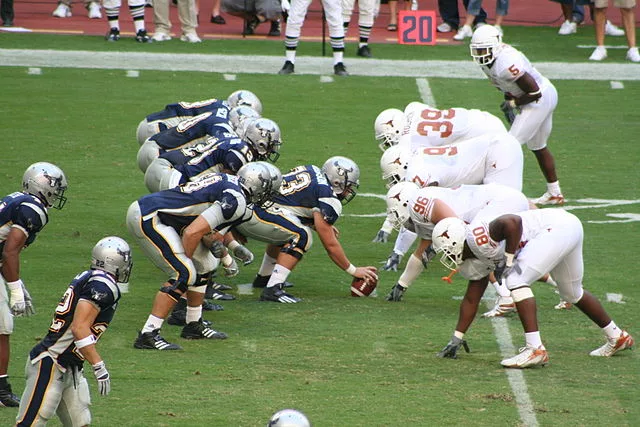
The world of sports in America is one of the most predominant entertainment industries in the world. So much money goes into sports entertainment just from networks, tickets, t-shirts, gear, etc. So much money is not only involved in professional sports but college sports as well. This has led to a debate on whether or not college athletes, who are the primary motors for college sports, should get a cut in the profits that universities and networks make off of them.
A lot of people say college scholarships are enough. Yet the money in this industry supersedes that. The United States Supreme Court has even recognized a right to compensation for college athletes based on their name, image, and likeness (NIL).
The NCAA regulates NIL practices around the nation and how far they can go. “NCAA recruiting rules preclude boosters from recruiting and/or providing benefits to prospective student-athletes,” says the NCAA NIL Guidance.
Universities are allowed to be involved in the process, such as setting up business education classes for athletes, providing a space to do NIL deals, inform students about NIL opportunities, and even asking donors to support NIL funds.
However, universities are not allowed to act as agents for students, cannot enter into contracts with students, and cannot directly monetize students or finance their NIL activities. Businesses also must be careful and not use contracts to entice students to come or remain at particular schools.
“The NCAA remains committed to the elimination of pay-for-play arrangements. Businesses must be cautious about entering into NIL agreements that may appear intended to entice athletes to attend or remain at a particular institution,” says the NCAA.
However, a new Texas law will protect universities in Texas that partake in the NIL marketplace and allow their teams to stay competitive in recruiting. The new law signed by the Governor prevents the state’s universities from being penalized regarding the NCAA’s NIL policy.
According to ESPN, “Without a clear nationwide set of rules, each new state law presents an opportunity for lawmakers to give their schools a leg up on rivals in raising money for athletes, and therefore in recruiting the best talent.” Texas has now become one of those states.
With the new law, Texas universities, and organizations of those universities, are able to directly partake in NIL activities that have previously been regulated from funding college athletes. The Texas law allows fundraising groups to pay athletes more directly for their name, image, and likeness, and give perks to fans to donate to NIL fundraisers. Some believe that this is going to give Texas universities an edge in recruiting athletes, knowing that, if they become top-level players, they can enter into deals and contracts, and maybe even set their career for professional sports.
One view of this new law is that it will allow the state’s universities to make sure that NIL activities for student-athletes are done the right way.
However, the NCAA’s response to this law is they still plan to enforce the rules regarding NIL practices. The NCAA has been lobbying the United States Congress to make federal regulations that override the state laws for NIL practices although it’s recognized that athletes should receive compensation for their name, image, and likeness, how far those compensations go for graduating seniors, and young college athletes could be harmful in the long run, according to the NCAA.